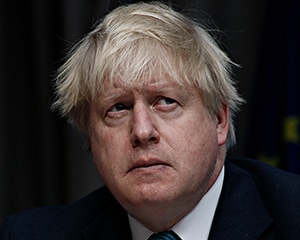With a new majority in parliament, British Prime Minister Boris Johnson can finally get Brexit done the way he wants it.

UK Prime Minister Boris Johnson’s gamble on a snap general election paid off in spades. Droves of voters in the Midlands and Northern England shunned Labour, resulting in the largest Conservative majority since Margaret Thatcher’s 1979 landslide victory.
While Johnson proved he is a great political campaigner, he now needs to demonstrate skills of statesmanship—vision, consistency, responsibility and a grasp of detail—that have previously been absent from his curriculum vitae.
There is much debate about “which Boris Johnson” will now step forth: the liberal metropolitan twice elected mayor of London, or the Trumpian, authoritarian, sound-bite-spewing populist.
Johnson’s chief adviser, the iconoclastic Dominic Cummings, remains in place and has plans to “shake up” the civil service, and place both the independent judiciary and the public media under review. The prime minister’s first pledge has been to uphold a “One Nation” version of conservatism, promising “to work night and day” to repay the trust of those who “lent us their votes.” He has committed to spending many billions on rail infrastructure, science parks and innovation hubs in the deindustrialized North, providing hope for many “left behinds” who rallied to his banner.
Given that there are 109 new Conservative MPs—many in their 20s and representing northern constituencies— Johnson may be held to those promises. That will require a more openly interventionist style of government and less rigorous management of the economy.
If the worry of a hard Brexit further damages the auto industry and other manufacturing in those regions, it could push Johnson’s government toward a softer version, more closely aligned with Europe than the freewheeling globalism promoted by ultra-Brexiteers in the European Research Group (ERG), who are now outnumbered by new MPs.
Certainly, Johnson’s One Nation pledges do not sit happily alongside the ERG’s vision of a deregulated “Global Britain.” For purely pragmatic, internal party reasons, Brexit may become more of an emblematic victory than a total rupture with Europe. Much will depend on the next stage of trade talks, with the prime minister likely to be concerned about his own political capital as much as with the real economic outcomes. In that, at least, he would be showing some consistency.



